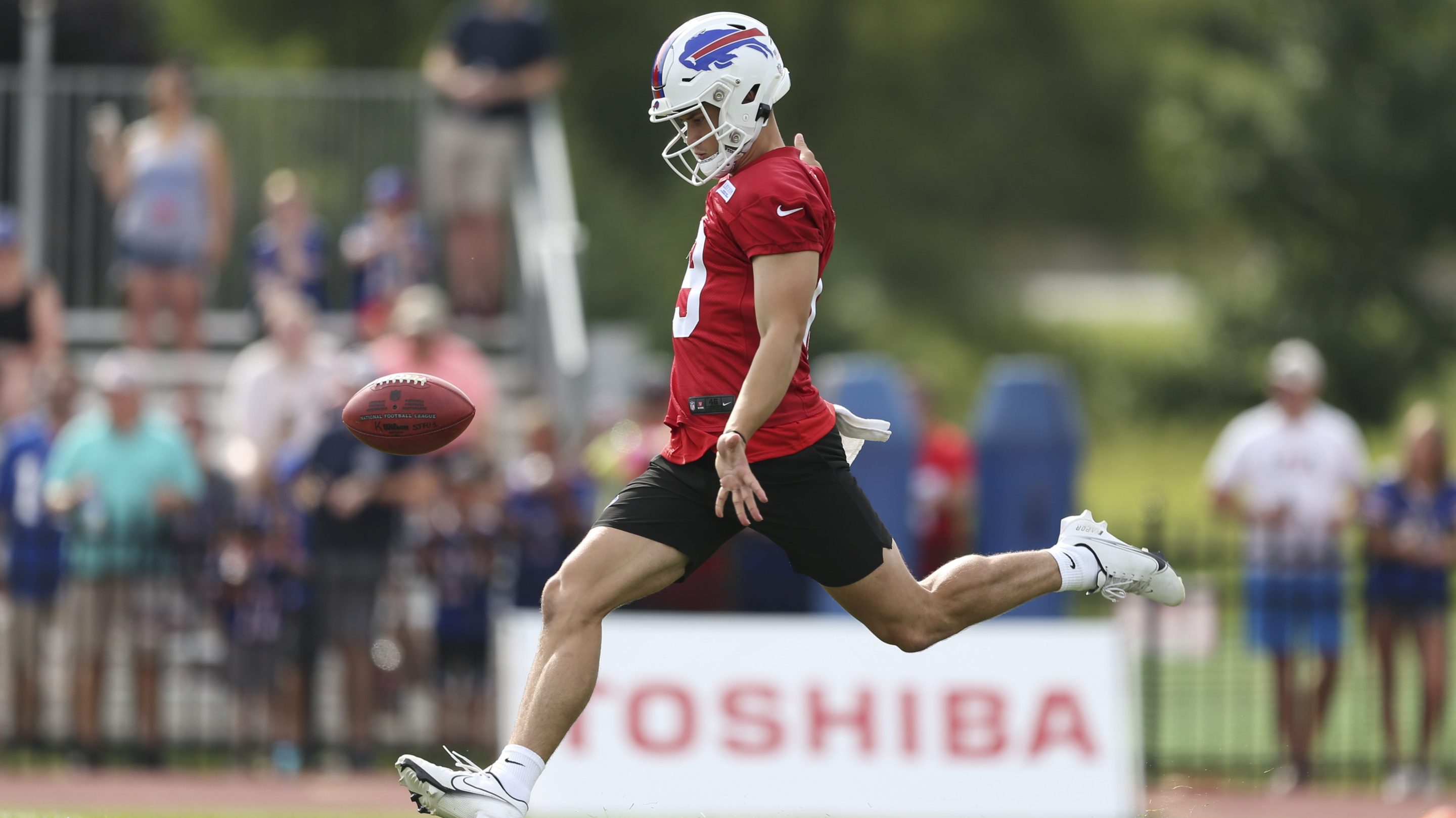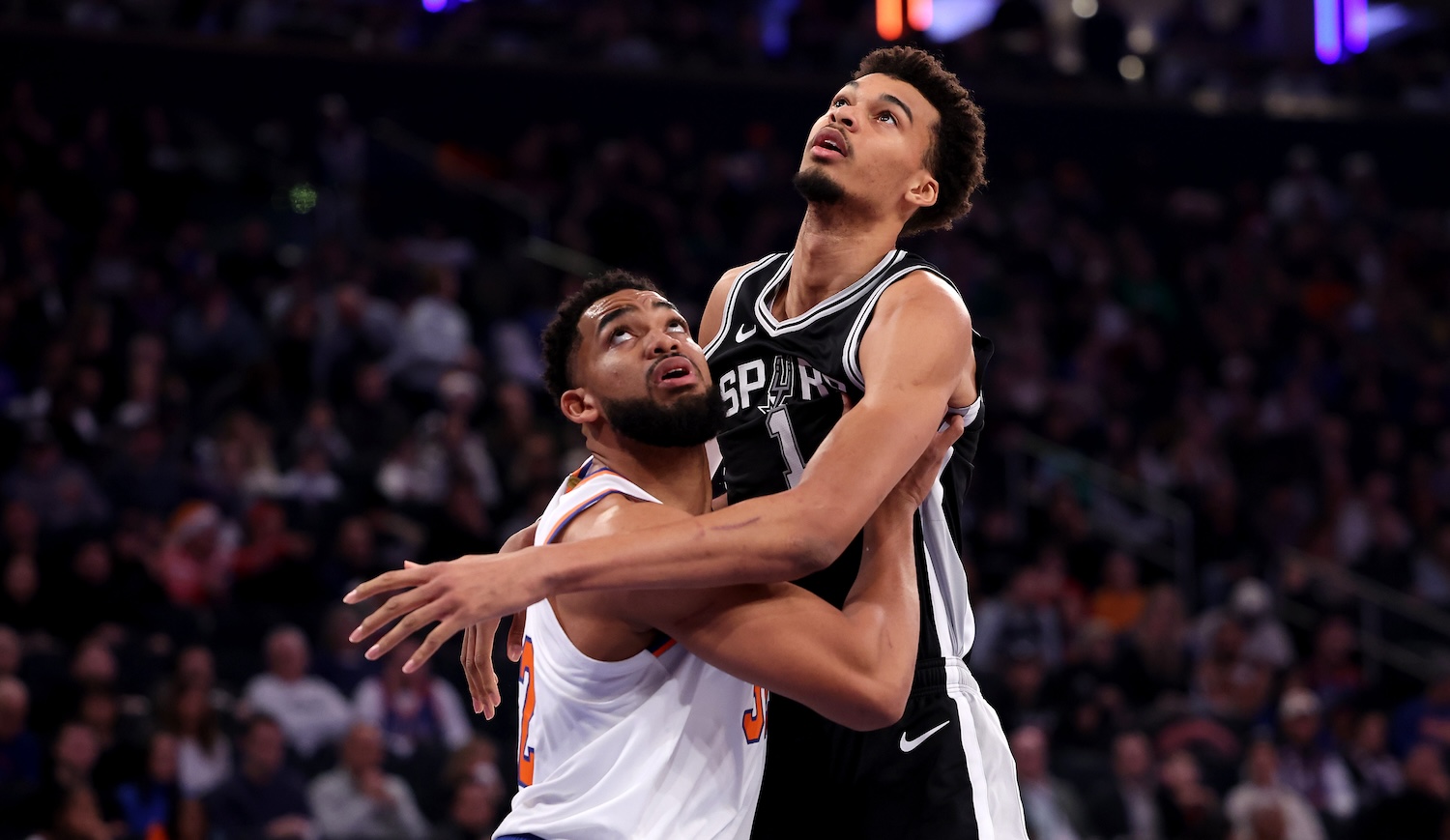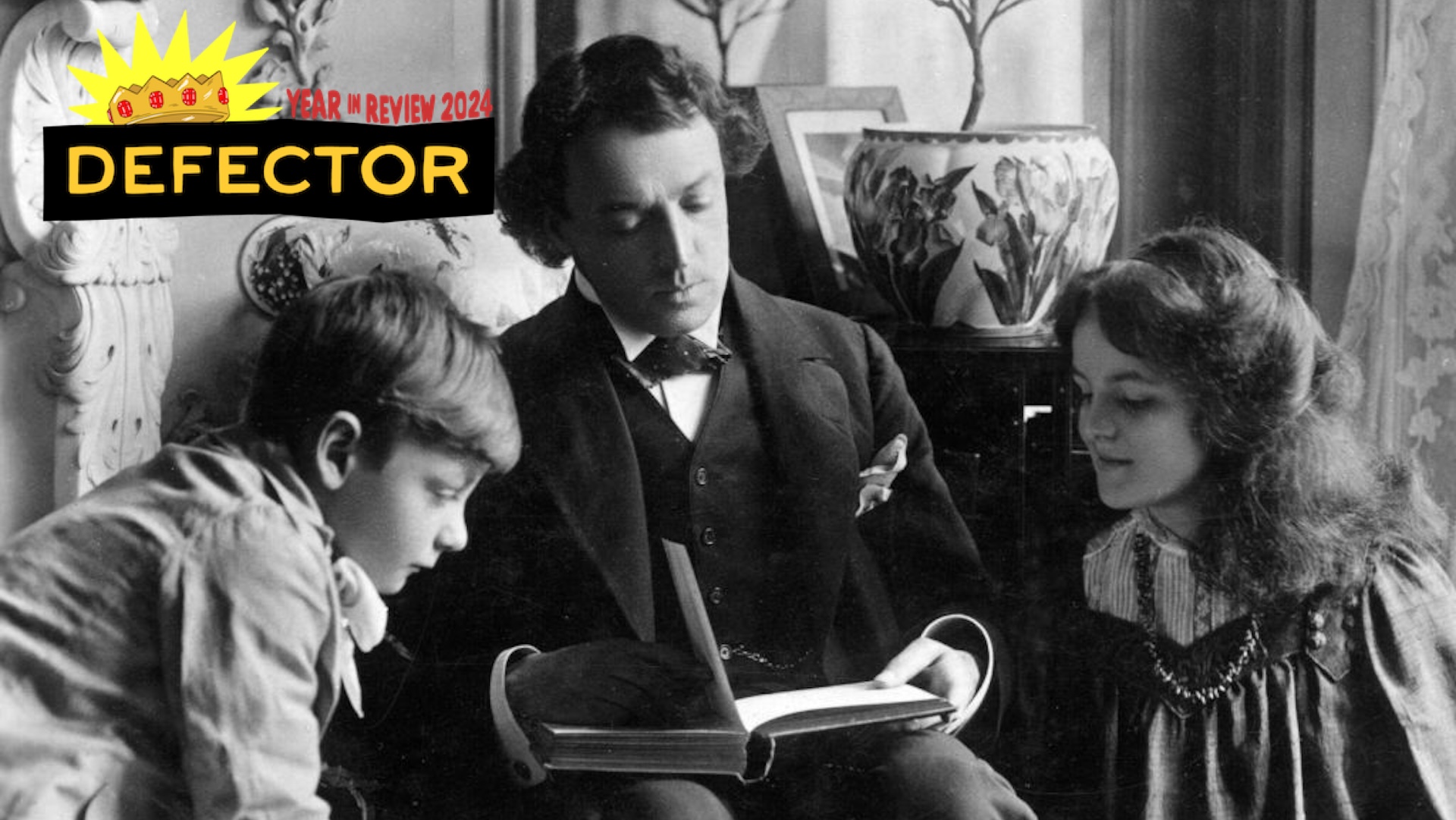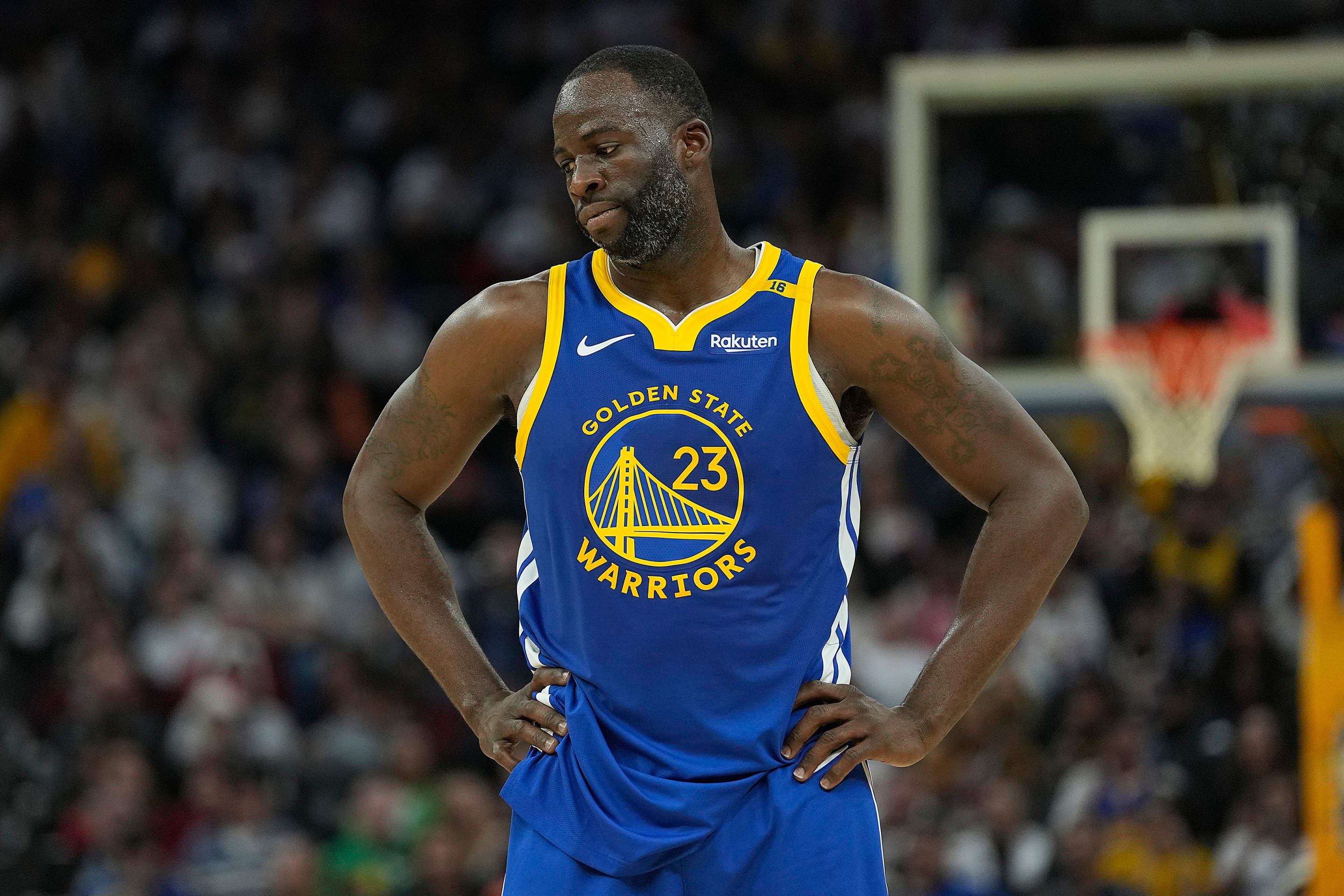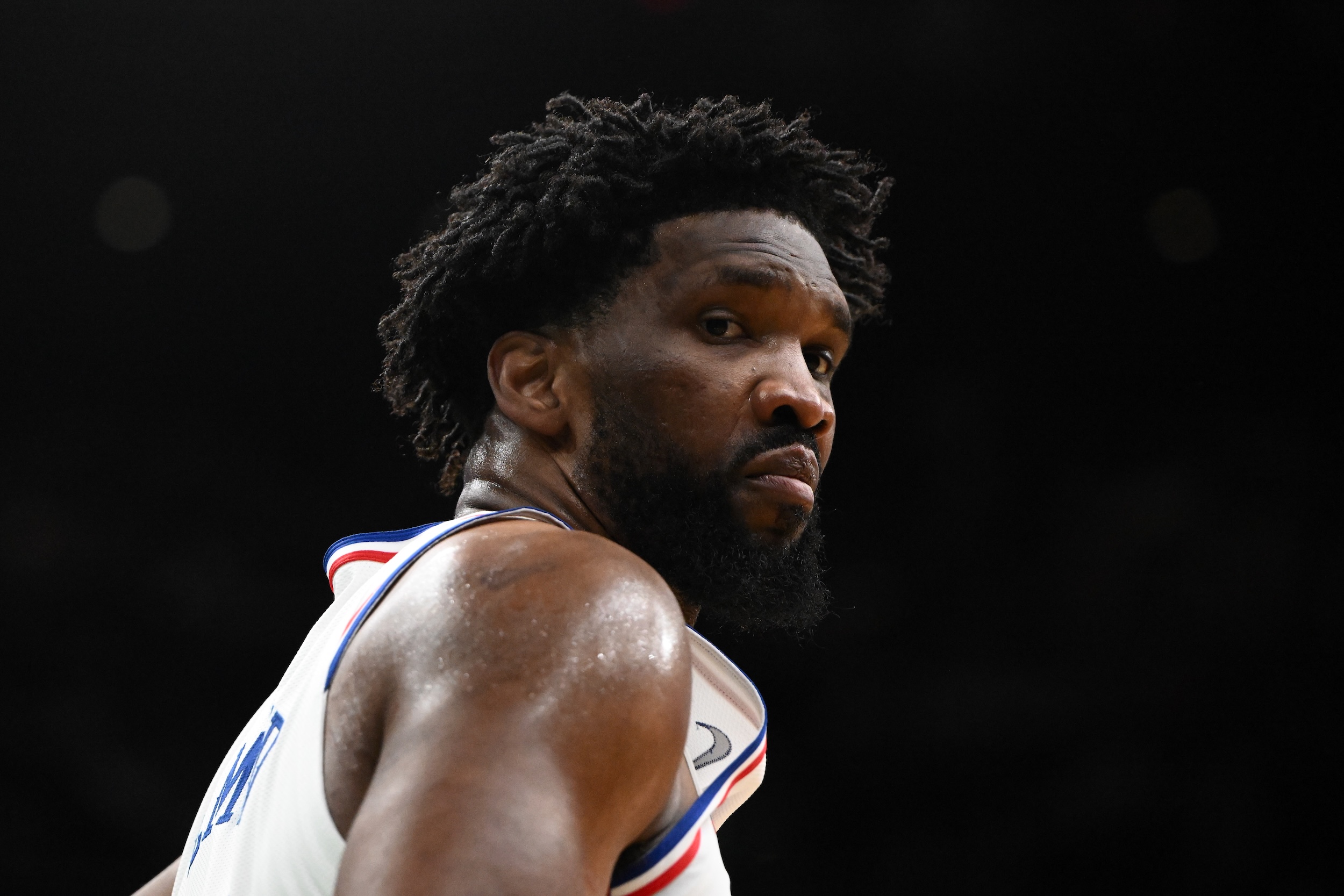Thursday night, the Los Angeles Times broke the news that Buffalo Bills punter Matt Araiza was one of three football players named in a civil lawsuit in which a young woman, going by Jane Doe, said she was gang-raped at a party. The lawsuit, filed in San Diego Superior Court, said it happened when Araiza was the punter for the San Diego State Aztecs and Doe was 17. Soon afterward, the Bills released a statement saying they had “conducted a thorough examination of this matter."
On Friday, the Bills sat Araiza for their preseason game, using backup quarterback Matt Barkley as their punter instead. Afterward, coach Sean McDermott talked to reporters in the expected press conference format. He insisted that the organization was taking the lawsuit very seriously. He also blew right past the many attempts by reporters to get real answers about what the Bills knew and when, several times invoking some form of "I can't get into details right now." There also was a fair bit of "I'm concerned" as well as McDermott alluding to the team learning a lot in the last 24 hours that it hadn't known before, which stood out given the team's statement about that "thorough examination."
On Saturday, Araiza wasn't at Bills practice, and it later became official that the team had cut him. This time, general manager Brandon Beane joined McDermott at the press conference table, though the answers did not get much clearer, detailed, or meaningful despite being longer and more verbose. The men at the table took great pains to not say words like "gang rape" or "underaged" or "violent." This is perhaps best personified by Beane's opening remarks, "We sympathize with this whole situation, all the parties involved. This young woman, what she went through. You really feel bad for that whole situation. And, you know, ultimately this is a legal situation. We don't know all the facts, and that's what makes it hard. But, at this time, we just think it's the best move for everyone to move on from Matt and let him take care of this situation and focus, you know, on that. And so we're gonna part ways there."
This was a running theme of the press conference, that somehow the Bills were doing what was best "for everyone" by cutting Araiza, and not what was best for the Buffalo Bills. In fact, this was just a "situation" or a "serious situation"—but not so serious that leadership would go into great detail about their own actions beyond what had been publicly reported. Beane and McDermott continued to avoid all questions—and reporters asked them repeatedly—about their own timeline, what the team knew and when, and what did go into that previous examination mentioned in their Thursday night statement.
People are asking about all this because, though Araiza's name became public on Thursday night, the gang-rape investigation has been ongoing and reported on here in Southern California since early June, a little less than two months after the NFL Draft, in which the Bills selected Araiza. That's when the Times first reported that police were investigating three San Diego State football players after a young woman said she was gang-raped at a party. The players were not named in the article. The article focused on how, more than seven months after the police investigation had begun back in October of 2021, the university still had not opened up any sort of Title IX investigation or disciplinary process into what happened.
In July, the Times reported another story, in which Doe and her father went into detail about what happened as well their attempts to report what happened. Doe's father said he reported what happened to a university police officer just three days after the party. Student athletes also had anonymously reported to the university what they had heard, that a girl was raped at a party by football players. One athlete said they worried that the university was “trying to sweep it under the rug because our football team is doing so well.” The same Times article noted that one of the players had graduated.
Then came Thursday night, when the civil lawsuit was filed and named Araiza as well as Zavier Leonard and Nowlin “Pa’a” Ewaliko. Leonard is still with the Aztecs; Ewaliko is no longer with the program. Araiza's lawyer, Kerry Armstrong, said the lawsuit was false. Lawyers for Ewaliko and Leonard declined to comment to the Times on Thursday.
On Saturday, Beane said the Bills didn't know anything about the San Diego State case at the time of the April draft. He added: "We've reached out to, I can tell you, double-digit teams at this point, and no one had anything on this." When the Associated Press talked to executives, all anonymously, three said they never heard about the investigation before the draft—but two said they did. Those two told the AP that "they became aware of Araiza’s involvement in an incident during the draft process" but they did not know "the extent of the allegations."
Beane confirmed that Doe's lawyer did speak with Bills general counsel Kathryn D'Angelo back in July, when Dan Gilleon, Doe's lawyer, reached out to her. From there, Beane said the team tried to be "thoughtful and not rush to judgment" but he never said what the team might have actually done beyond these scant details: talking to the NFL (which sounds more like an ass-covering move than an investigative move), talking to Araiza (who surely pleaded innocence), and talking to "various people that we have in law," which, appears to have given them very little, likely because they are in Buffalo and nearly all the other parties involved are in San Diego. Gilleon has said that, after his initial talk with D'Angelo, he never heard from the team again.
And all this would have taken place before last Monday, when the team cut its other punter, Matt Haack, essentially declaring Araiza their guy for the season. Which was a key detail that Beane and McDermott both chose to leave out of their public display of opacity on Saturday. They could try to sell cutting Araiza as a bid for moral clarity, which only works if you don't know how NFL rosters work.
NFL teams almost always carry just one punter. This isn't like nearly all other positions, where you have one or multiple backups. That's why cutting Haack made Araiza the starting punter, because there was no other punter, and why a backup QB ended up filling in for the position when Araiza didn't play. If Araiza were, say, a quarterback or a running back, the team could bench him or ask the league to put him on the nebulous "commissioner's exempt list" and, essentially, disappear him while the legal system and San Diego State continue their processes and, all the while, a backup would play the position. This quirk of the NFL roster, no backup punters, meant either the Bills had to play him and stomach an untold level of vitriol, or cut him.
Clearly, enough people were already angry enough that the Bills chose the latter. But trying to portray it as more than football decision—when all it was was a football decision—requires ignoring the way a football roster works. I don't doubt that Bills executives were horrified by what they read in the lawsuit. But whatever goodwill they might earn for doing the right thing should be couched with the necessary context: They didn't have any choice.
For the Bills, cutting Araiza is ultimately a way to make people stop asking questions and move on. They can pick up another punter. Meanwhile, San Diego State is still conducting its much-delayed Title IX investigation. Police have handed over their evidence to local prosecutors, who have yet to make a decision on if they will file criminal charges. There are, as the initial Times report showed, many institutions worth questioning about their actions here, not just the Buffalo Bills. But for now, the focus is on the Bills, who still seem to have far too few meaningful answers.
